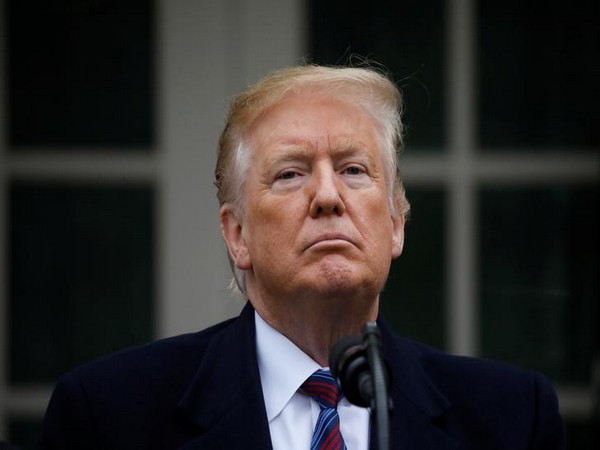New Trump rule would target legal immigrants who get public assistance

- Country:
- United States
U.S. President Donald Trump's administration unveiled a sweeping rule on Monday that would limit legal immigration by denying visas and permanent residency to hundreds of thousands of people for being too poor. The long-anticipated rule, pushed by Trump's leading aide on immigration Stephen Miller, takes effect Oct. 15 and would reject applicants for temporary or permanent visas for failing to meet income standards or for receiving public assistance such as welfare, food stamps, public housing or Medicaid.
Immediately after the rule was announced, the National Immigration Law Center (NILC) said it would file a lawsuit to stop it from taking effect. The group's executive director said the rule was racially motivated. The overhaul is part of Trump's efforts to curb both legal and illegal immigration, an issue he has made a cornerstone of his presidency.
The 837-page rule could be the most drastic of all the Trump administration's policies targeting the legal immigration system, experts have said. Advocates for immigrants have criticized the plan as an effort to cut legal immigration without going through Congress to change U.S. law. The new rule is derived from the Immigration Act of 1882, which allows the U.S. government to deny a visa to anyone likely to become a "public charge."
Most immigrants are ineligible for the major aid programs until they qualify for green cards, which grant legal permanent residence status. However, the new rule announced in the Federal Register by the Department of Homeland Security expands the definition of a public charge and stands to disqualify more people.
DEFINING 'PUBLIC CHARGE'
Ken Cuccinelli, the acting director of U.S. Citizenship and Immigration Services (USCIS) said at a White House media briefing announcing the rule that "the law has required foreign nationals to rely on their own capabilities and the resources of their families, sponsors and private organizations in their communities to succeed" "However," Cuccinelli said, "Congress has never defined the term 'public charge' in the law and that term hadn't been clearly defined by regulation. That is what changes today with this rule."
The new rule defines public charge as an immigrant who receives one or more designated public benefits for more than 12 months, within any 36-month period, according to a fact sheet from USCIS. The benefits would count in the aggregate, such that a receipt of two benefits in one month would count as two months, for example, the fact sheet said. The definition of public benefits is cash aide including Supplemental Security Income, Temporary Assistance for Needy Families, the Supplemental Nutrition Assistance Program (SNAP), most forms of Medicaid, and a variety of public housing programs, the fact sheet said. The regulation also excludes benefits for individuals in the U.S. armed forces, as well as their spouses and children. Cuccinelli said it would have no impact on humanitarian-based immigration programs for refugees and people seeking asylum.
The rule requires career admission officers to assess at a minimum each applicant's age, health, family status, assets, resources, and financial status, and their education and skills, among other factors, Cuccinelli said at the briefing. "The principle driving it is an old American value and that's self-sufficiency," Cuccinelli said in a Fox News interview published on Monday before the White House briefing.
"It will also have the long-term benefit of protecting taxpayers by ensuring people who are immigrating to this country don't become public burdens, that they can stand on their own two feet, as immigrants in years past have done," he told Fox. Before the rule was published, the Migration Policy Institute, a research organization, estimated more than half of all family-based green card applicants could be denied under the new system. Some 800,000 green cards were granted in 2016.
'HUDDLED MASSES'
Critics have decried the effort to limit legal immigration for lower-income people affront to the nation's ideals highlighted by the inscription on the Statue of Liberty that reads "Give me your tired, your poor, your huddled masses yearning to breathe free."
Miller asked in 2017 about whether the administration's policies toward immigration countered that American inscription, said the words were not original to the monument. Cuccinelli was also asked about the inscription at the White House on Monday and said: "I do not think, by any means, we are ready to take anything off the Statue of Liberty."
Immigrant advocates have expressed concern the rule could negatively affect public health by dissuading immigrants from using health or food aid to which they or their children are entitled and would have a "chilling effect" on immigrants seeking help for their U.S. citizen children. In early 2018, Trump rejected a bipartisan effort in Congress to reform the nation's immigration system that became embroiled in controversy over accusations by a Democratic senator that the Republican president profanely disparaged African and Caribbean nations in regard to their immigrants. Trump has denied using that language and said he wanted immigrants to come to the United States from all nations.
Cuccinelli said no particular group should feel targeted by the measure. The State Department already changed its foreign affairs manual in January 2018 to give diplomats wider discretion in deciding visa denials on public-charge grounds. In the 2018 fiscal year, which ended last September, the number of visas denied on those grounds quadrupled compared to the previous year.
Also Read: Donald Trump not behaving like a patriot: Tulsi Gabbard
(This story has not been edited by Devdiscourse staff and is auto-generated from a syndicated feed.)
ALSO READ
South African policymakers discussing lower inflation target – Kganyago
Former rebels in Central African Republic disarm but face few options. Wagner is one of them
SANDF refutes claims that South African soldiers being held by M23
"I didn't sign up for this...": Lizzo addresses critics in candid video
South African parliament speaker resigns amid corruption probe










